###### tags: `Siriana`
# ChatGPT for Music Scholars
## What is ChatGPT?
https://openai.com/blog/chatgpt/
ChatGPT is an opensource (meaning free to use, provided you create an account) AI that's been trained/developed by the company OpenAI. GPT stands for generative pre-trained transformer.
**This is how it works.**
ChatGPT pulls information from the entirety of the internet as a knowledge base. Using that information bed, the most likely next word in a sentence. This is called a language prediction model. Users can ask ChatGPT any question, and using the language prediction model, it answers the user's question. ChatGPT functions like a ChatBot you might have encountered before (ChaCha, if you're going back to 2007, or Cleverbot, or GooglyMinotaur). ChatGPT, however, is far more advanced, and now is consdiered the most advanced ChatBot on the market. Not only can it chat with you-- it can perform tasks. These tasks include writing code, writing essays, answering questions, writing poetry, and more.
Here's some examples of what ChatGPT can do.
Writing an Email | Answering a Question| |
| -------- | -------- | -------- |
| 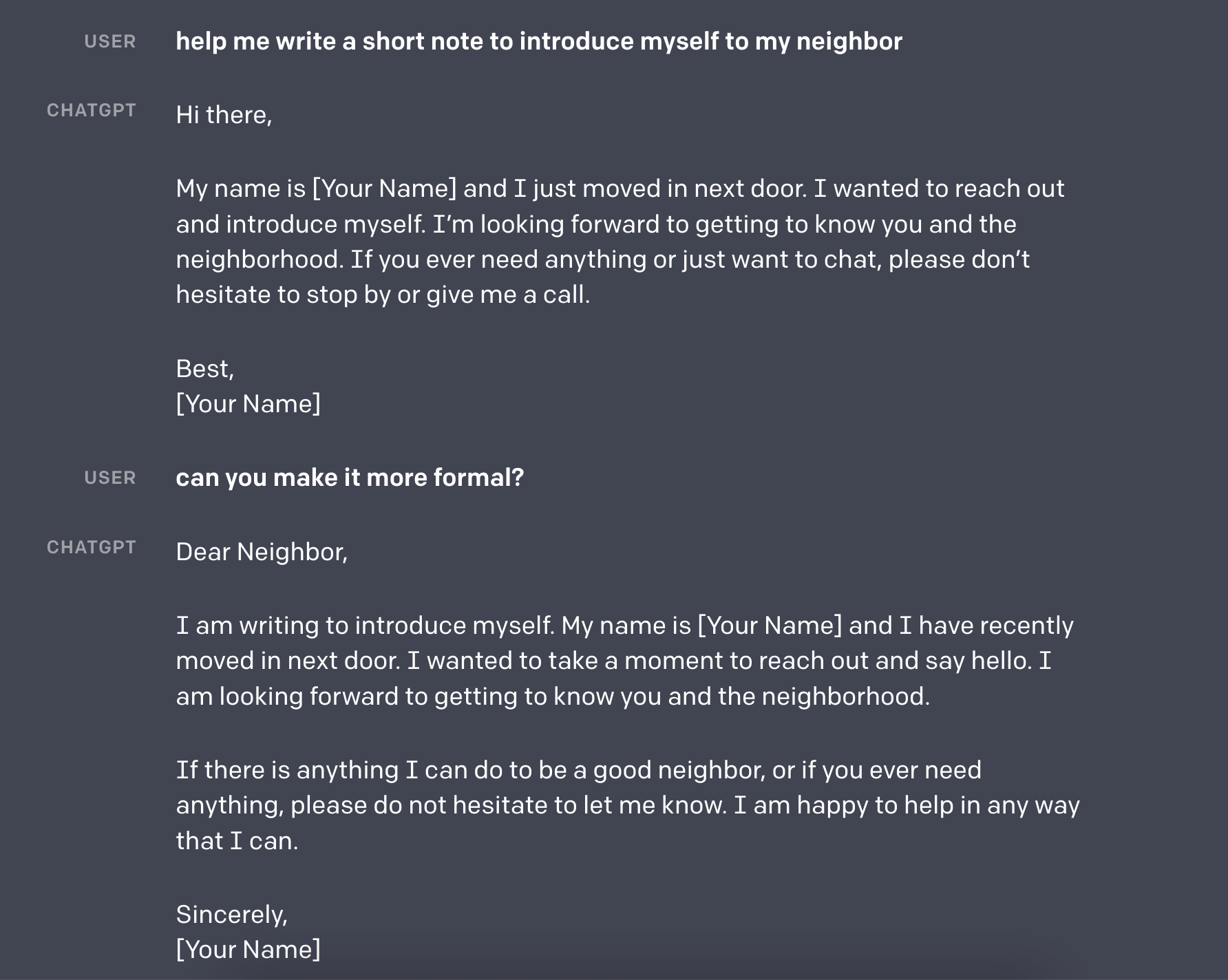 | 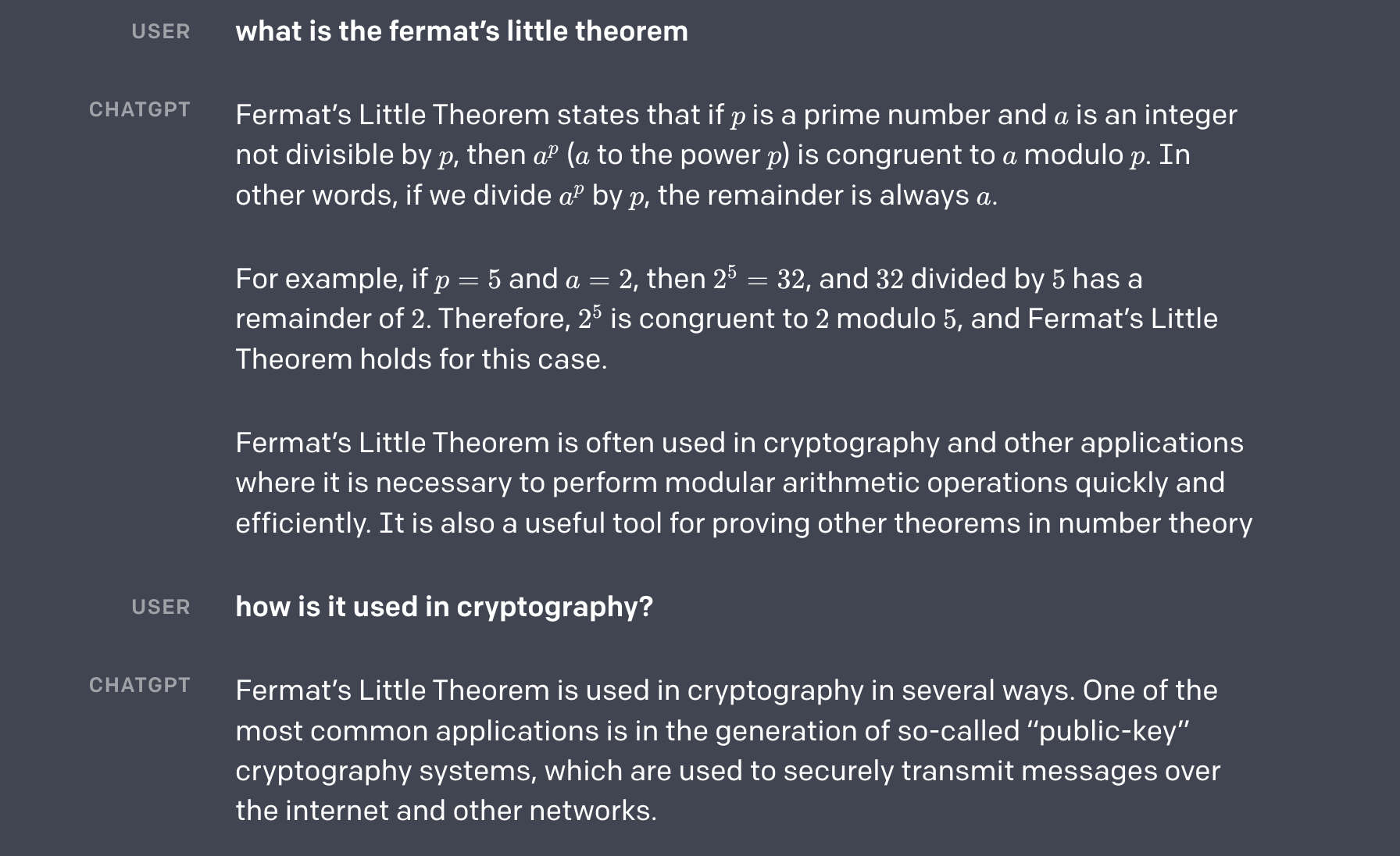
ChatGPT is a completely free AI that anyone can access if they have an OpenAI account. The potential of a text generator as sophisticated as ChatGPT is enormous, and, undoubtedly to those of us who teach writing in our disciplines, difficult to estimate.
Below is an example of how one might use ChatGPT in a music history classroom.
## Example Assignment Using ChatGPT
Let's say I was teaching a course on Female Composers of the 19th century. As a weekly writing assignment, I could:
1) Give a student and ChatGPT the same prompt.
"Write me 250 words on Clara Schumann's influence on 21st century pianists"
Below (Figs. 1&2) is ChatGPT's response to that directive.
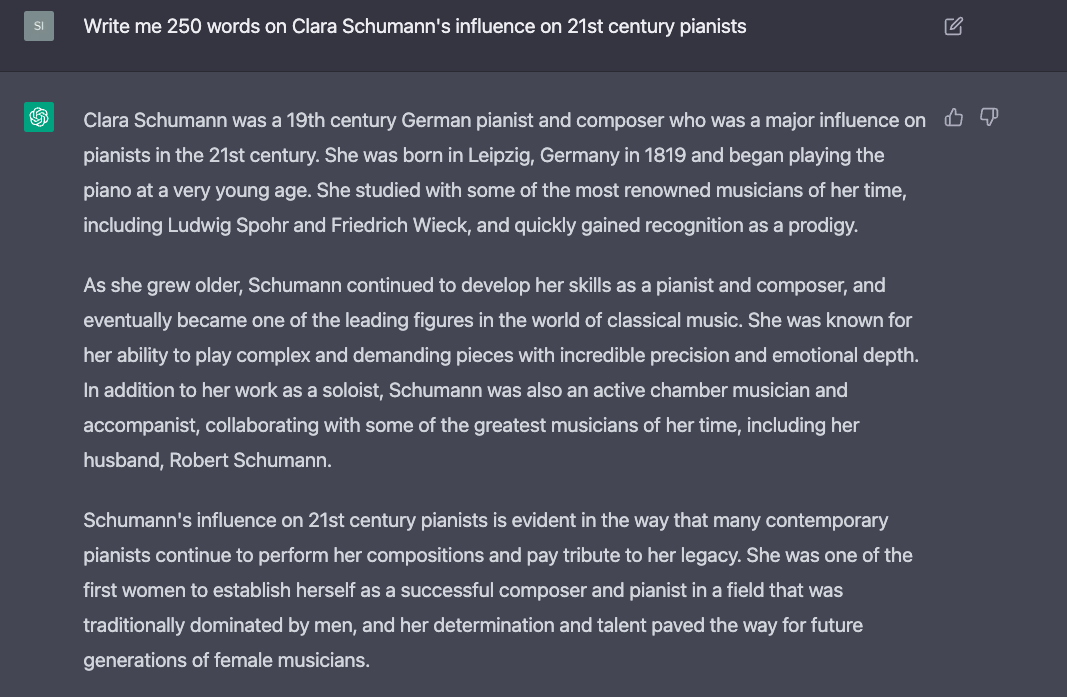
Fig. 1
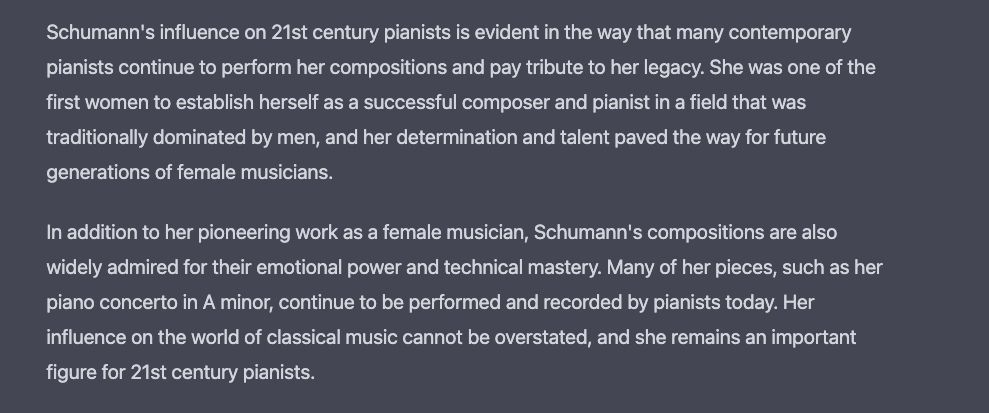
Fig. 2
2) Have students bring in their writing responses while the professor brings in the ChatGPT generated response.
3) Have a student volunteer to share their writing and compare the two in group discussion. This can teach not only about how to critically engage with AI based answers, but can also give insight into the subject of the prompt itself. Here are some guiding questions:
* Do you agree with what the AI wrote as it's thesis?
* What did the AI choose to focus on in Clara Schumann's life? How (if at all) does that reinforce gendered discussions of musicianship? Why does the article mention the men in her life? Where does it mention them?
* How might machine learning bias be evident in this answer?
* What did the AI miss that you want to highlight about Schumann's life?
* What did you learn about Schumann from reading the AI's response?
* How does your lived experience add more dimensions to the AI's answer?
* How would you improve the response? What grade would you give it if you were the professor?
**Learning Goals:** Figuring out what we think about Schumann's influence on 21st century pianists, discussing machine-learning bias, critically interoggate and AI, discuss what makes compelling writing.
# ChatGPT explains the Field
ChatGPT is only a predictive language modeler, at its core. It cannot share work, nor can it control software outside of the ChatGPT interface (yet). But that doesn't mean it isn't useful for large scholarly discussions, and for generating scholarly debate the same way our conventional writing does. Here's an assignment that introduces this idea.
Let's say I'm teaching an Intro to Musicology course. I want my students to know what musicology is, what issues we musicologists' debate about, and what's important right now. You can ask your students to do some ChatGPT homework. At the end of the semester, once students have learned more about the field, assign the following.
1. Ask ChatGPT: "Explain the field of musicology to me."
2. Evaluate the answer. Do you agree with what it highlighted? How does the ChatGPT description align with or challenge current debates in our field? What does the description miss?
For reference, Here is the ChatGPT explanation of musicology.
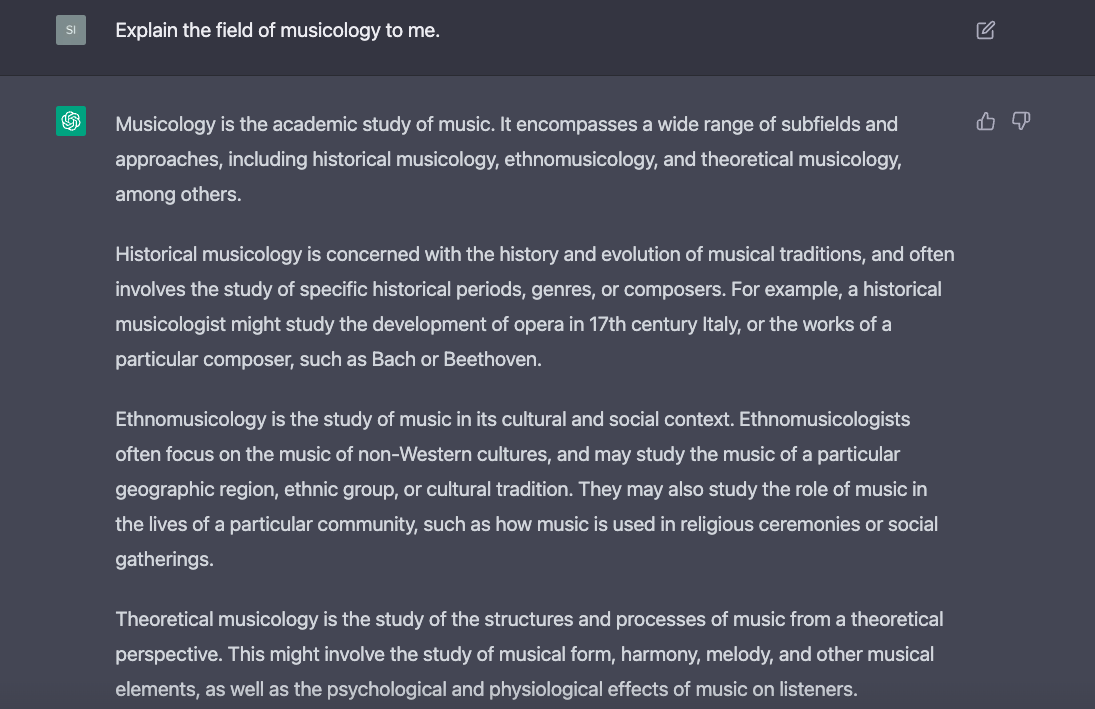
One of the key debates in our field is whether or not Historical Musicology, Ethnomusicology, and Music Theory (interestingly termed "theoretical musicology" here, a term not used frequently in the field itself) should be grouped together under "small-m musicology." ChatGPT is already assuming this is the case, and presenting this information to the world. Students in an introductory course to the discipline would have a lot to say about how redactive the descriptions of each subfield. So, let them write a new version! Error detection and reading response is an integral part of the writing process, which is something students would engage in here. Responding not to another scholar, but rather to an amalgamation of the internet's collective thought about our discipline.
3. Have students write their own 500 word answer to this question, as if they were ChatGPT. How can you explain the discipline, it's key debates and figures, and future directions, to an incredibly broad audience of both experts and amateurs?
**Learning Goals:** Illustrate understanding of the field of musicology in a broad sense, identify errors in conceptions about the field, form your own opinion on what is importnat in the field, and critically read an AI response.
### **Error Detection in Music Theory**
ChatGPT can NOT, at this point, perform any type of musical analysis on notes. (Yet. I am confident it will be able to do this in a matter of years.)
## Concluding Thoughts
ChatGPT still has bugs. Many bugs (what is theoretical musicology??) But it could be a wonderful way to teach critical engagement with AI technologies, while also giving students endless examples for sessions of compare/contrast writing. I'm sure there is intense anxiety about cheating and plagarism (and what does that even mean if an AI is generating work for you?). Yet I can't help but feeling that this is a tool that will begin to stick around-- and teaching how to properly engage with it (like Wikipedia, back in the day!) might be a beneficial framework to lay in place now.
ChatGPT has lots of problems though, in a factual sense. When you ask it about history, it claims it cannot research historic events or places, but can come up with a biography for Clara Schumann. NO sources are cited. ChatGPT isn't Wikipedia, though it can find information for you-- it's only purpose is to write.
### Important Technological Note
What's tricky about language prediction models like ChatGPT is that they often include machine learning bias.
The pre-cursor of ChatGPT was an AI called GPT-3. As a text generator that pulls it's database of source material from the entirety of the internet, GPT-3 would often return confusing, untrue, and conspiracy minded answers to basic questions. OpenAI claims to have mitigated for this bias in developing ChatGPT into a publicly availble technology.
ChatGPT uses GPT-3 "under the hood" so to speak, with a series of slick UI changes that are supposed to make the AI easier and safer to use. Here's what OpenAI says about it on their website:
> We’ve trained a model called ChatGPT which interacts in a conversational way. The dialogue format makes it possible for ChatGPT to answer followup questions, admit its mistakes, challenge incorrect premises, and reject inappropriate requests.